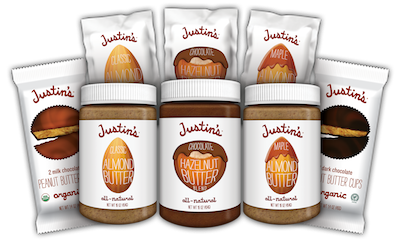Another one bites the dust. Another mom and pop business, that is.
Yesterday, snack food giant Hormel bought out Justin’s Nut Butter for $286 million. This is another example of Big Food attempting to buy its way into a healthy image, acquiring small health food companies as fast as they can. When General Mills bought out Annie’s Mac & Cheese, for instance, hundreds of thousands of incited mothers felt personally wronged and vowed to boycott their kids’ favorite product forevermore.
Hormel’s latest move is not in isolation. As big snack food giants like Hormel and PepsiCo witness consumer culture and market trends dramatically shifting towards more healthy standards, company executives are clamoring to keep up.
It’s become clear that the snack food industry’s greatest threat is the emerging health trend — it hurts their bottom line. Executives like Al Carey, CEO of Americas Beverages for PepsiCo, who publicly claimed in a recent keynote address that this growing health trend is terrifying, says this means companies have to innovate and expand into new markets or else risk losing a whole lot of business.
Indeed. Major packaged-food companies lost $4 billion in market share in 2014, as shoppers opt for fresher and organic alternatives void of the likes of artificial colors and flavors, pesticides, preservatives, high-fructose corn syrup, growth hormones, antibiotics, and genetically modified organisms.
Take an average Hormel or PepsiCo product — Spam, hot dogs, potato chips, or Pepsi cola — which probably has many if not all of those demonized ingredients (for good reason – they’re killing our health and the planet). Carey claims that he wants 90% of everything in development to have “some improved health benefit.”
The motivation behind Hormel’s newest acquisition is clear — the Justin’s brand (which features over 2 dozen products all containing loads of palm oil), gives Hormel a shiny new platform in natural and organic artisanal peanut butter spreads, and further balances the company’s portfolio of brands toward younger, more health conscious and on-the-go consumers according to James Snee, Hormel COO.
Hormel will no doubt continue to snatch up smaller companies that boast much healthier products than its trademark Spam and Hormel meats that come straight from a factory farm, which hurts animals and the environment, but is this enough to give the brand a clean bill of health?
While Hormel and PepsiCo are busy health washing their corporate brand, they continue to do nothing on the issue of Conflict Palm Oil.
Hormel is a laggard Snack Food 20 company because its palm oil commitment lacks clear requirements for suppliers to end destruction of rainforests, peatlands and abuse of human and labor rights. As a matter of urgency, Hormel Foods Corporation should strengthen its current commitment and publish a time-bound plan to cut Conflict Palm Oil. Please join RAN by taking action right now to tell Hormel and PepsiCo that acquiring health food companies isn’t doing anything to get Conflict Palm Oil out of their products.
